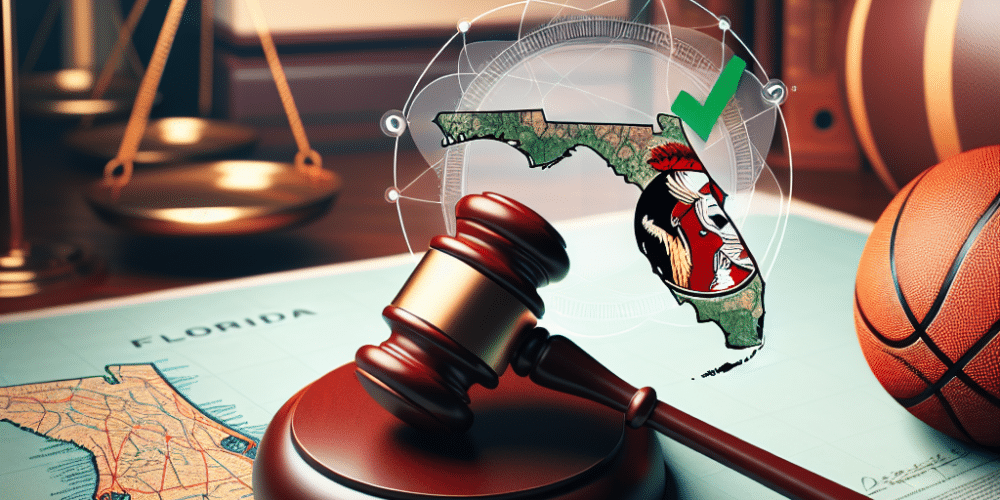A Florida circuit judge has dismissed a lawsuit that attempted to nullify the state’s gambling compact with the Seminole Tribe, marking another significant victory for the 2021 agreement allowing statewide online sports betting under the tribe’s jurisdiction. This decision supports the compact established by Governor Ron DeSantis and the Seminole Tribe of Florida, a deal that was later ratified by state lawmakers.
Judge Jonathan Sjostrom of the Leon County Circuit Court issued the ruling on Friday, stating that Protect the Constitution LLC, the Delaware-based entity that initiated the lawsuit, lacked the necessary legal standing. The court determined that the organization failed to provide sufficient information about its membership, business operations, or the specific impacts of the compact on its interests, as reported by CBS News.
The judge pointed out that due to these omissions, Protect the Constitution could not demonstrate any particular harm resulting from Florida’s sports betting framework. However, the court offered the organization an opportunity to amend its complaint and resubmit it by November 21.
The contested lawsuit targeted the 2021 compact, which permitted the Seminole Tribe to conduct mobile sports betting throughout Florida, provided that the bets were processed by servers located on tribal land. Proponents of this arrangement argue that it adheres to federal regulations governing tribal gaming by keeping the betting operations confined within tribal boundaries.
Central to the debate is a 2018 constitutional amendment, supported by Florida voters, which mandates voter approval for any new casino gambling initiatives. Protect the Constitution contended that the allowance of mobile sports betting without a statewide vote contravened this amendment. The organization asserted that sports betting qualifies as a form of casino gambling and therefore required voter consent.
The state’s defense, led by Attorney General James Uthmeier, argued that the 2021 compact is consistent with both state and federal laws. They highlighted the Indian Gaming Regulatory Act, which permits states and tribes to negotiate gaming agreements on tribal lands. According to the state’s attorneys, the compact aligns with these legal stipulations. They further emphasized the financial benefits of the deal, which promises Florida a minimum of $2.5 billion in revenue over the first five years.
Judge Sjostrom’s ruling did not address the constitutionality of the 2018 amendment nor did it evaluate whether the compact conformed to it. Instead, the judge concentrated exclusively on the issue of standing. This decision is the latest in a series of unsuccessful efforts to impede the Seminole Tribe’s expansion into sports betting. Previous challenges by pari-mutuel operators in both state and federal courts have similarly been dismissed, thereby maintaining the 2021 compact and the tribe’s exclusive rights to operate online sports wagering within Florida.
Supporters of the compact argue that it represents a pragmatic balance between state interests and tribal sovereignty, ensuring substantial financial returns for the state while respecting the autonomy of the Seminole Tribe. The financial implications for Florida are particularly notable, with the state set to receive billions in revenue that can support public services and infrastructure projects. Advocates assert that the compact is not just a legal or economic matter, but a step forward in modernizing the state’s approach to regulated gambling.
Conversely, critics of the compact maintain that bypassing a voter referendum undermines the democratic process established by the 2018 amendment. They argue that allowing the compact to stand without public approval sets a troubling precedent for future gambling expansions in the state. This perspective emphasizes the importance of adhering to the constitutional amendment, which was designed to give Floridians a voice in determining the scope and scale of gambling operations within their communities.
The ongoing debate underscores the complex interplay between federal regulations, state legislation, and voter-initiated amendments. As the legal battles continue, the future of sports betting in Florida remains a contentious issue, with significant implications for stakeholders on all sides of the argument. While the current ruling fortifies the Seminole Tribe’s position, legal experts suggest that the conversation is far from over. The potential for further legal challenges persists, as opponents may seek alternative avenues to contest the compact or advocate for legislative changes that align more closely with the 2018 amendment.
In conclusion, Judge Sjostrom’s decision to dismiss the lawsuit against the Seminole Tribe’s gambling compact represents a pivotal moment in Florida’s approach to sports betting. It highlights the ongoing tension between upholding voter-approved constitutional amendments and advancing agreements that promise economic benefits. As both supporters and critics of the compact continue to articulate their positions, the landscape of sports betting in Florida will likely remain a dynamic and evolving arena.

David Harrison stands tall in gambling journalism, marrying his firsthand casino experiences with a deep understanding of betting psychology. His articles transform complex gambling jargon into engaging tales of strategy and chance, making the world of betting accessible and enjoyable. David’s knack for narrative extends beyond print, making him a sought-after speaker on gambling trends and future bets. In the realm of gambling, David is both a scholar and a storyteller, captivating readers and listeners alike.
















